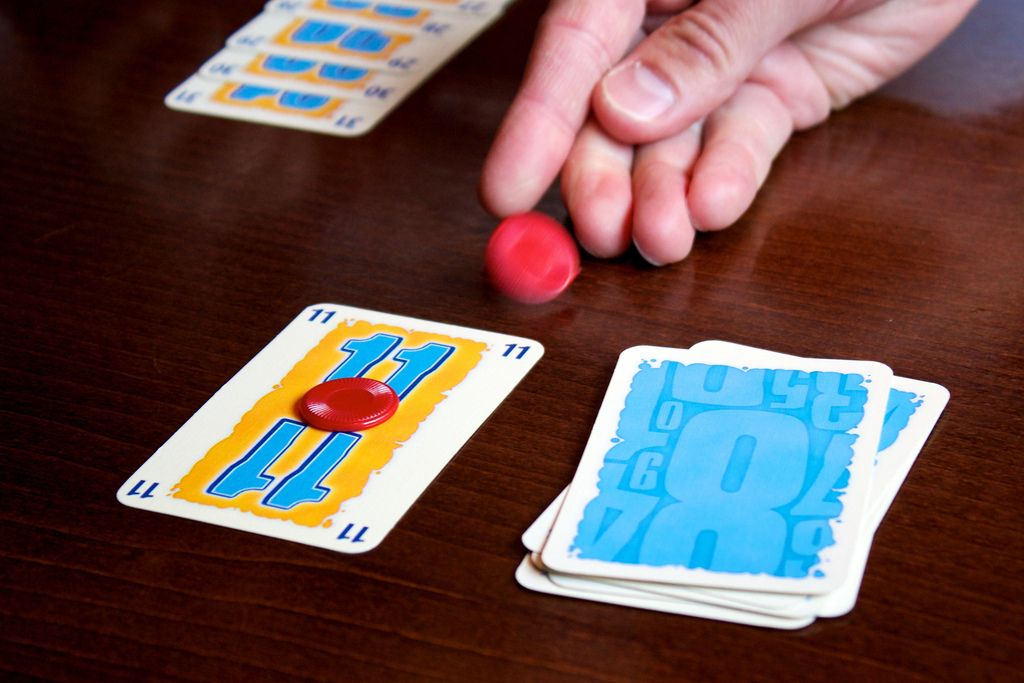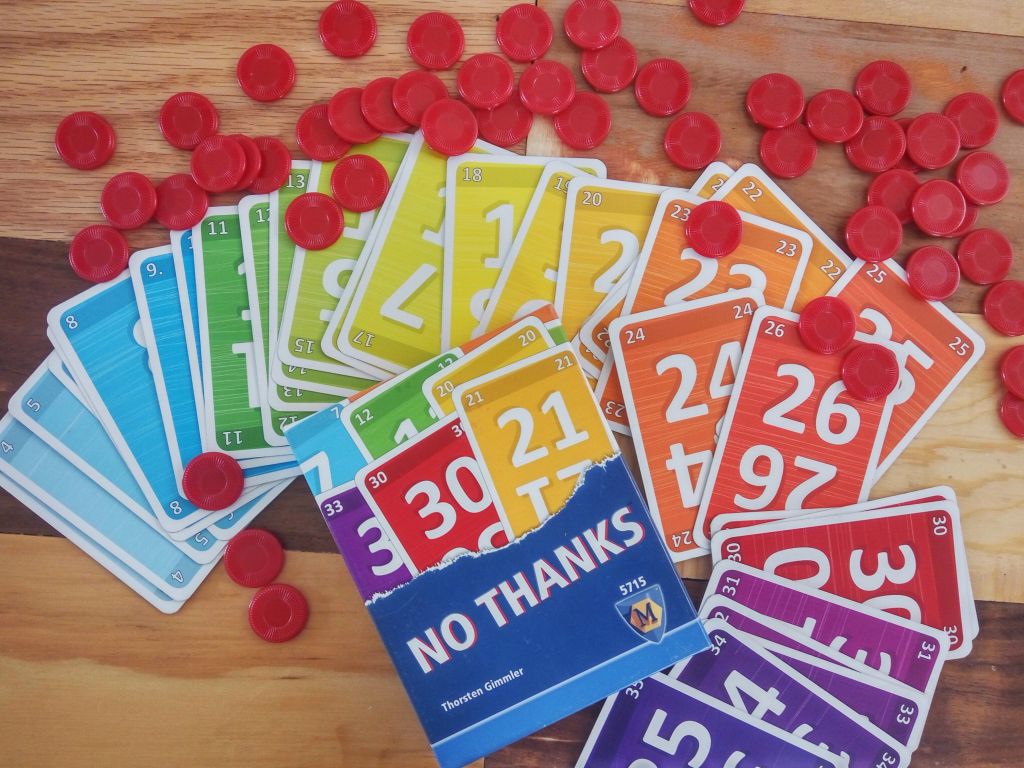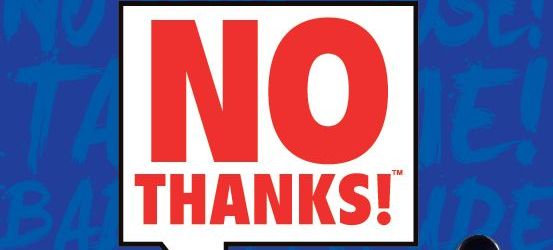Last week I talked about 6 Nimmt!, which is a great little card game that needs nothing other than to shuffle the cards, deal them out, and play. Following up on that post, I want to talk about No Thanks, which I have been enjoying immensely lately.
No Thanks, designed by Thorsten Gimmler and first published in 2004 is a single deck of 33 cards, numbered from 3 to 35. The game begins by distributing the tokens to each player, burning 9 cards off the deck, then a single card is turned over. The start player has a choice. To either take the card and any chips that may be on the table, or, say “No Thanks”, and place a chip onto the table, passing play to the next player. Round and round it goes until someone takes the card and all the chips.
The game ends when the deck runs out of cards. Players earn points based on the face value of all their cards, then subtract a point for every chip they have in their supply. The catch is if someone has a sequence of numbers (like 25, 26, 26, and 28), only the lowest card in that sequence is scored. The player with the lowest score is the winner.

Image Credit: Mikko Saari (@msaari) via BGG
And that’s all you need to know to play No Thanks. Another game that can go from being in the box to playing in less than 5 minutes, and can support a wide range of players (from 3 to 7). I love games where each players turn is so small. Everyone stays in engaged as they’re constantly making decisions and evaluating the game state.
What separates No Thanks from a game like 6 Nimmt, is that in No Thanks, Everyone has access to the same information. There’s no hands of cards, or hiding how many chips everyone has, or trying to remember who took which card, everything is face up on the table. This makes significant room for goading your friends into making bad decisions. “Come on Otter, take the 33. You already have the 35, once the 34 comes up, you’ll be golden!”
While the excitement in 6 Nimmt is in the reveal of the card everyone chose each round, No Thanks revels in the excitement of the push-your-luck of letting the pot of chips grow and grow as the cards go around and around the table. It’s subtle, but a card that you initially dismissed and tossed a chip in becomes more and more tempting as that pot grows. Not only are the chips worth negative points at the end, they represent a significant amount of power. If you can drain someone of all their chips, suddenly they’ve lost the ability to pass, and you can stick them with a series of terrible cards, driving them into the ground.

Image Credit: Jose Luis Zapata De Santiago (@zapata131) via BGG
Of course, that situation is rare. Thoughtful players won’t allow that situation to happen to them, but it does give No Thanks the feeling of good strategy. When a player wins, it’s not because of blind, dumb luck. It’s because they played well. Whether they made good decisions on which cards to take, or if they just played the other players better, it remains to be seen.
Because a game of No Thanks is so fast, It’s real easy to play over and over again. It’s the kind of game that accompanies good conversation, or just an activity to engage with while you’re spending time with your favourite people. No Thanks is an absolute winner in my book. It’s more approachable than 6 Nimmt, which means it gets played with a wider variety of people. I find that it particularly shines during late nights at the campsite with a big bowl of snacks and some adult beverages as it’s effortless to teach and play. Any game that’s this approachable, and still exciting and fun to play is an easy recommend from me!


I just joined my first game of this on BGA! 😀
LikeLike
Exciting! Hope you like it!
LikeLike